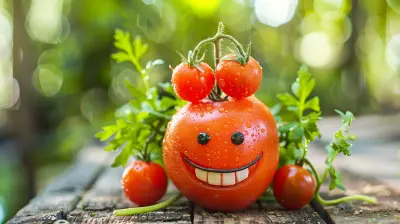Uncovering the Myths of Plant-Based Eating
30 April 2025
Plant-based eating has been gaining traction over the past few years, but let’s be honest—there’s still a ton of misinformation floating around. People assume that going plant-based means nibbling on nothing but lettuce and missing out on essential nutrients. Others believe it’s an expensive, inconvenient, or even unhealthy choice.
Well, it's time to bust these myths wide open! If you've ever wondered whether plant-based eating is really as amazing (or as terrible) as people claim, keep reading. We’re about to set the record straight.
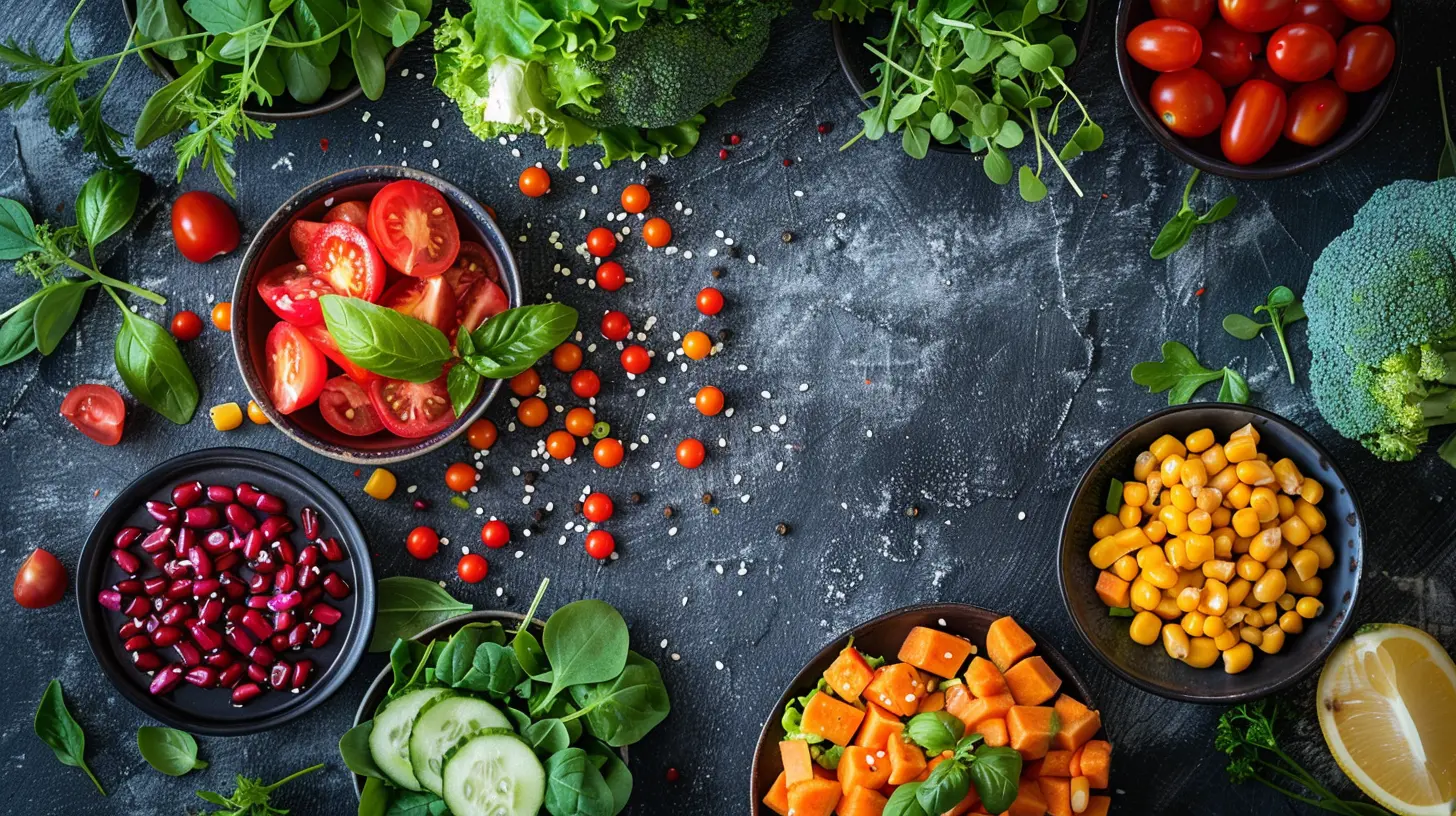
Myth #1: You Can’t Get Enough Protein on a Plant-Based Diet
Let’s tackle the big one first: the protein myth. Somehow, society has been brainwashed into thinking that protein only comes from meat. Spoiler alert: That’s completely false.Protein is found in abundance in plant foods, including:
- Lentils
- Chickpeas
- Quinoa
- Tofu
- Tempeh
- Nuts and seeds
- Black beans
- Edamame
Not only can you get enough protein from plants, but you can also get all nine essential amino acids when you eat a variety of plant-based foods. Ever heard of quinoa or soy? Yep, they're complete proteins!
And no, you don’t need to stress about “protein combining” at every meal. Your body is smart enough to store and utilize amino acids from different foods throughout the day. So unless you’re a professional bodybuilder aiming for extreme muscle growth, protein deficiency is the least of your worries.
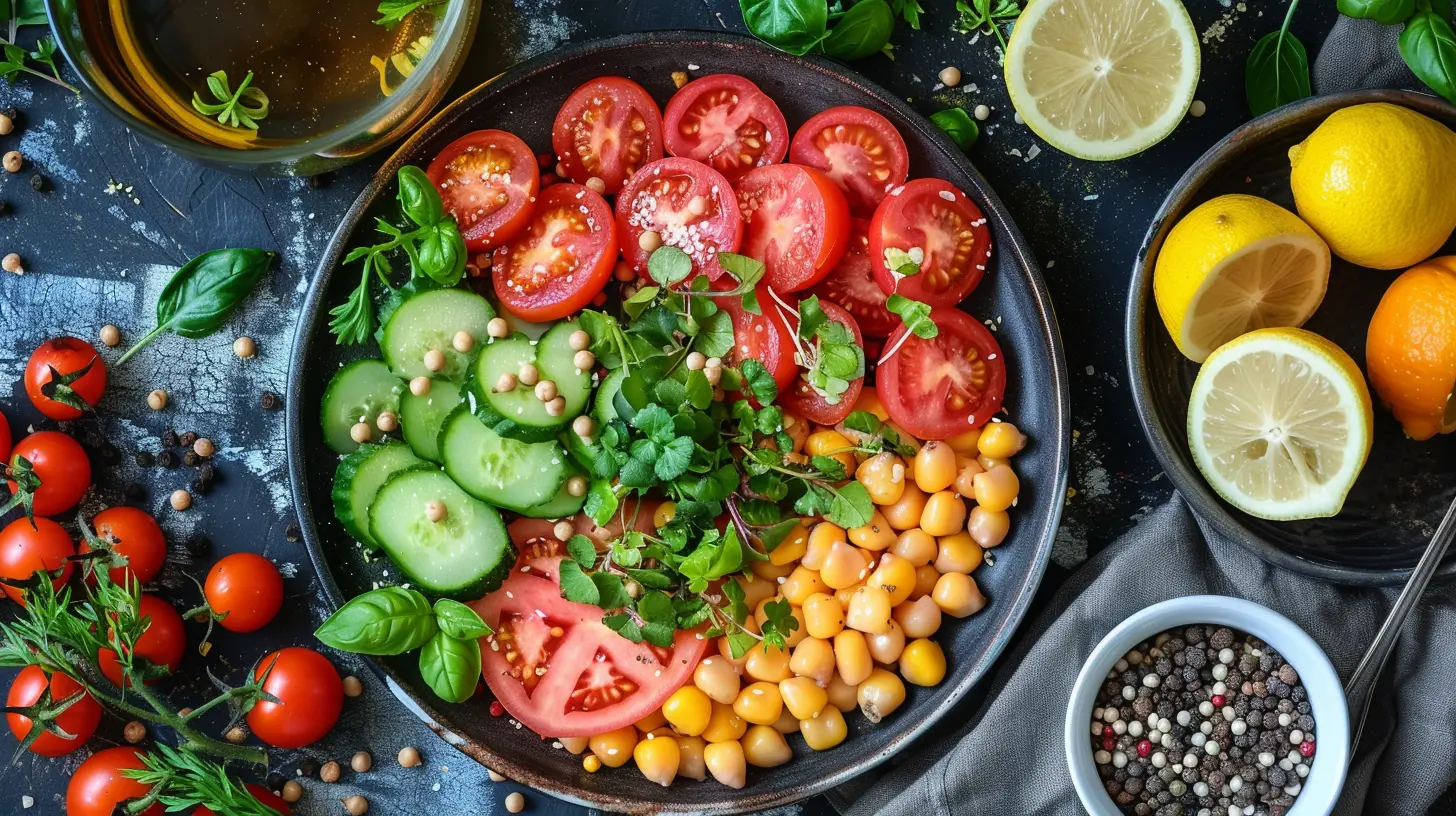
Myth #2: Plant-Based Diets Are Nutrient-Deficient
Another common misconception is that if you ditch animal products, you’ll become weak, frail, and nutrient-deficient.The truth? A well-planned plant-based diet is packed with vitamins and minerals. In fact, studies consistently show that plant-based eaters consume more fiber, antioxidants, and essential nutrients compared to meat-eaters.
That said, there are a few nutrients you should pay attention to:
- Vitamin B12 – Since it's mainly found in animal products, you may need a supplement or fortified foods.
- Iron – Plant-based sources like lentils, tofu, and spinach contain iron, but pairing them with vitamin C (think citrus fruits or bell peppers) enhances absorption.
- Omega-3s – You can get these from flaxseeds, chia seeds, walnuts, and algae-based supplements.
- Calcium – No, you don’t need dairy! Broccoli, kale, almonds, and fortified plant milks are rich in calcium.
Bottom line? As long as you're eating a well-balanced plant-based diet, getting all your nutrients isn’t rocket science.
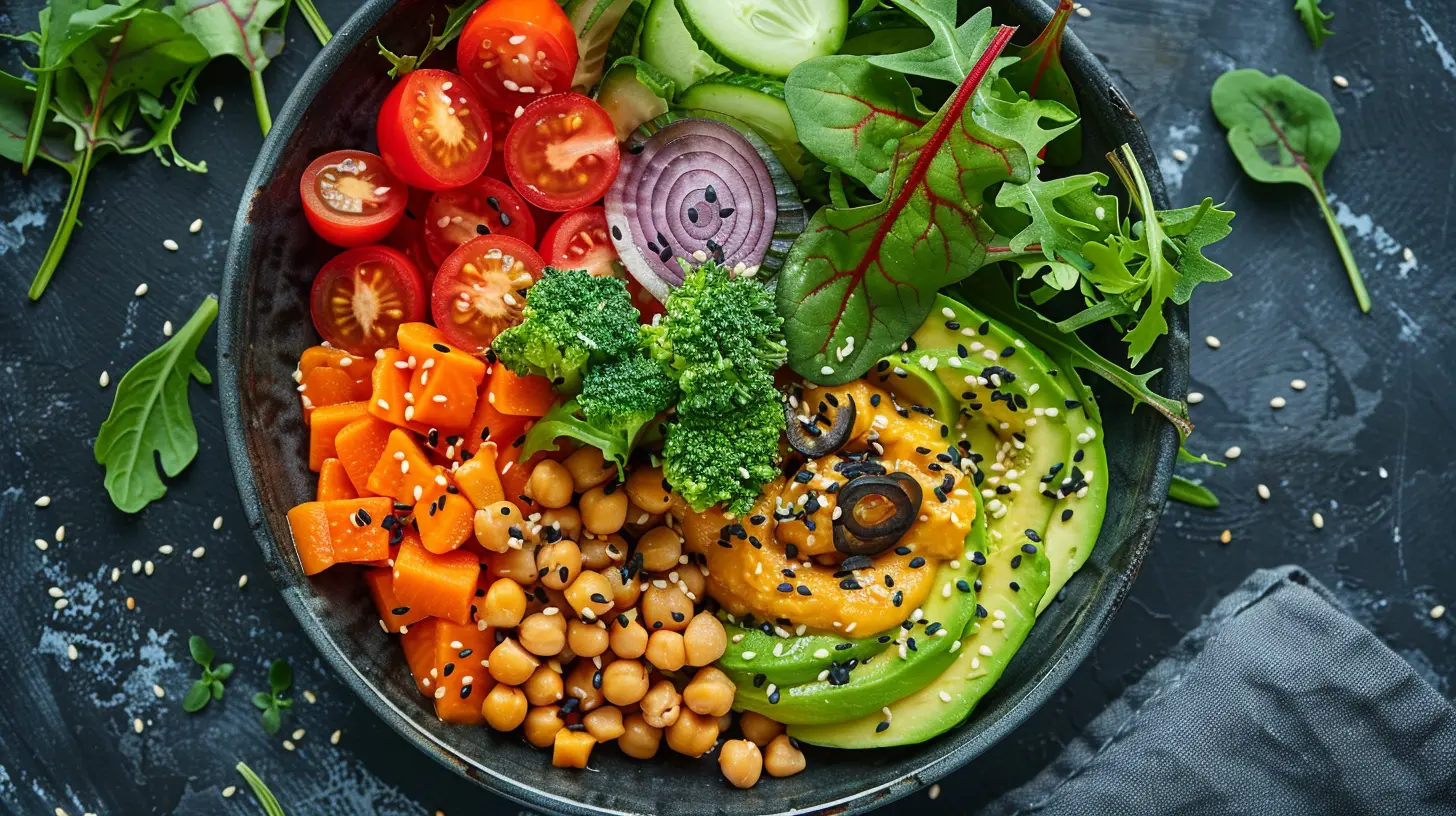
Myth #3: Eating Plant-Based is Expensive
Let’s get real—eating healthy can be expensive if you’re constantly buying specialty vegan products. But at its core, plant-based eating is actually one of the most budget-friendly ways to eat.Think about it. What’s cheaper—beans and rice or steak and cheese?
Staple plant-based foods like lentils, beans, whole grains, potatoes, and seasonal fruits and veggies are some of the most affordable foods on the planet. The key is to ditch the fancy processed vegan products and stick to whole foods. Your wallet (and your health) will thank you.
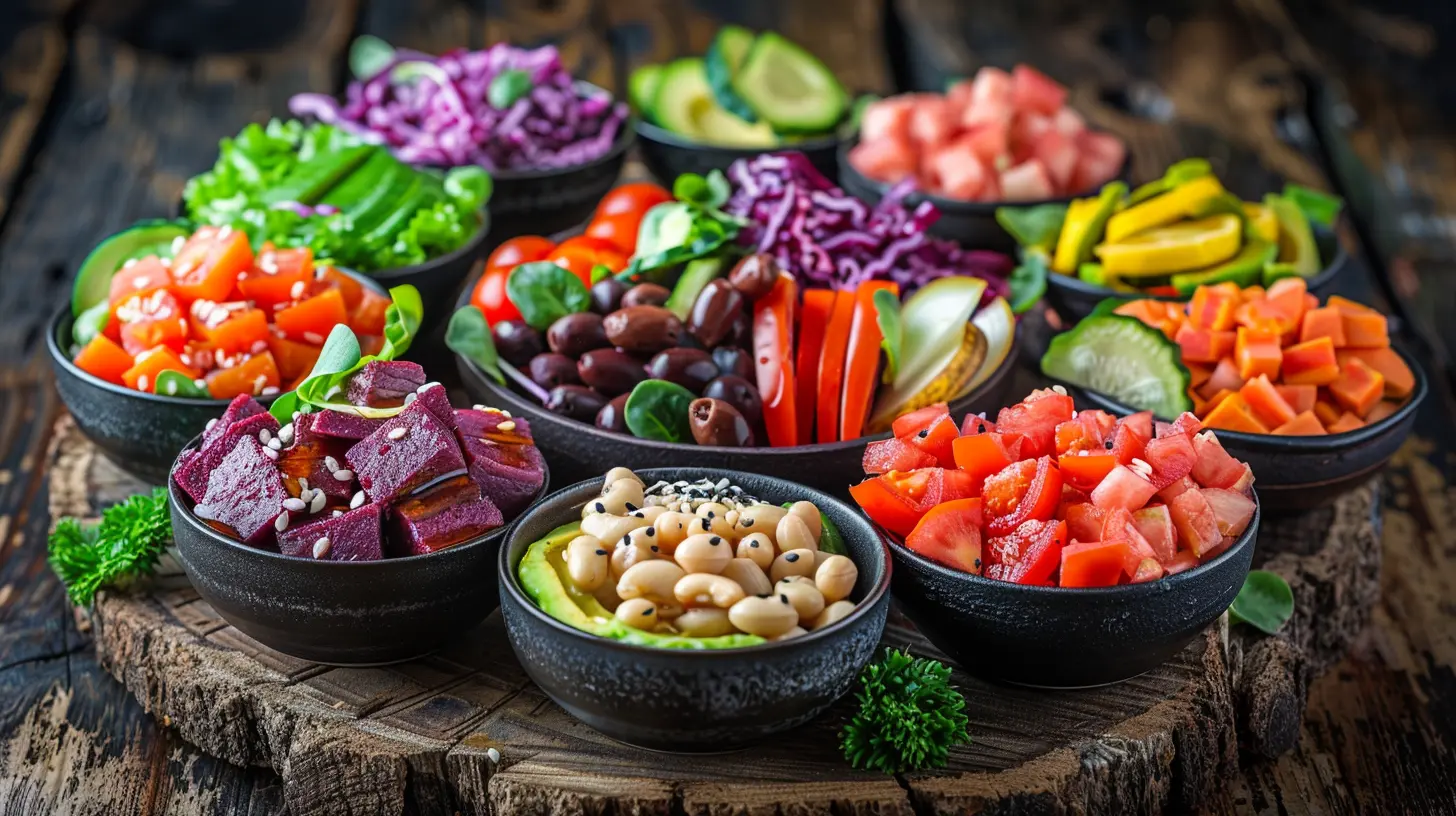
Myth #4: You’ll Always Be Hungry on a Plant-Based Diet
This is one of those myths that just won’t die. People assume that because plant foods are lower in calories, you’ll be starving all the time.The truth? Hunger is not about whether you're eating plants or animal products—it’s about what and how much you’re eating.
If you only eat a tiny salad for lunch, of course, you’re going to be hungry. But if you load your plate with fiber-rich whole foods—think beans, quinoa, sweet potatoes, avocado, and nuts—you’ll be full and satisfied.
Fiber is your best friend here. It slows digestion, keeps you full longer, and stabilizes your blood sugar. And guess where fiber is found? Yep, exclusively in plants.
Myth #5: Plant-Based Diets Are Bland and Boring
Many people think plant-based eating is all about steamed vegetables and plain salads. Yawn.But if you believe that, you’re seriously missing out! Plant-based meals can be absolutely bursting with flavor. With the right combination of herbs, spices, and seasonings, you can create some of the most delicious meals you’ve ever tasted.
Ever tried:
- A spicy chickpea curry?
- Smoky BBQ jackfruit tacos?
- Creamy cashew alfredo pasta?
- Loaded sweet potato nachos?
- Zesty avocado and black bean wraps?
Trust me, plant-based food is anything but boring when you know how to cook it.
Myth #6: It’s Hard to Get Started and Stay Committed
A lot of people think going plant-based means an overnight, cold-turkey switch. In reality, it doesn’t have to be all or nothing.You don’t have to be 100% plant-based right away—or ever, for that matter. Many people transition gradually, swapping out one animal product at a time.
Start with Meatless Mondays or swap dairy for plant-based alternatives. Maybe eat plant-based until dinner. Make it work for YOU.
And guess what? The more plant-based meals you eat, the more you’ll realize how easy (and delicious) it is.
Myth #7: Plant-Based Eating is Just a Trend
Every time a diet gains popularity, people love calling it a trend. But here’s the deal—plant-based eating isn’t some passing fad.Cultures around the world have relied on plant-based diets for centuries, long before Instagram influencers made it cool. The Mediterranean diet, traditional Asian diets, and even the diets of our ancestors were largely plant-based.
Not only that, but research continues to show that plant-based diets can help:
- Lower the risk of heart disease
- Reduce inflammation
- Support gut health
- Improve energy levels
- Increase longevity
So no, this isn’t just another diet craze. It’s a lifestyle with real, science-backed benefits.
Final Thoughts
It's time to stop believing the myths and start embracing the truth about plant-based eating. You can get enough protein, nutrients, and energy. It doesn’t have to be expensive or boring. And no, you won’t be stuck eating salads for the rest of your life.Plant-based eating is nourishing, satisfying, and delicious—when done right. Whether you go fully plant-based or just incorporate more plant foods into your diet, your body (and the planet) will thank you.
So, what are you waiting for? It’s time to ditch the myths and start eating real, wholesome, plant-powered food!
all images in this post were generated using AI tools
Category:
Plant Based DietAuthor:

Jackson Mahoney
Discussion
rate this article
5 comments
Iris McMahon
This article provides a valuable perspective on plant-based eating, debunking common myths while highlighting its benefits. It's important for individuals to consider balanced nutrition and consult professionals when making dietary changes. Great resource!
May 11, 2025 at 3:03 AM

Jackson Mahoney
Thank you for your thoughtful feedback! I'm glad you found the article informative and valuable. Balanced nutrition is indeed key when exploring plant-based eating.
Uma McElhinney
Great insights! Busting these myths helps everyone understand the real benefits of plant-based eating.
May 6, 2025 at 4:04 AM

Jackson Mahoney
Thank you! I'm glad you found the insights helpful in highlighting the true benefits of plant-based eating.
Lysara Cooper
Plant-based eating transcends mere health trends; it's a lifestyle that promotes sustainability, compassion, and wellness. By debunking myths, we empower individuals to embrace diverse nutrient sources while fostering a deeper connection to food and the environment. Mindful choices matter.
May 3, 2025 at 3:59 PM

Jackson Mahoney
Thank you for highlighting the broader impact of plant-based eating! It's essential to promote understanding and connection to food for a sustainable and compassionate lifestyle.
Nyxaris Sheppard
Plant-based eating is often misunderstood. It’s not just about salads; it can be balanced and nutrient-rich. By debunking common myths, we can empower people to embrace diverse plant foods that support health while enjoying delicious meals. Let's celebrate the benefits of plant-based living!
May 3, 2025 at 4:46 AM

Jackson Mahoney
Absolutely! Plant-based eating is versatile and can be both nutritious and enjoyable. Celebrating its diversity helps empower healthier choices. Thank you for highlighting this important perspective!
Brandon Peterson
This article effectively debunks common misconceptions about plant-based diets, highlighting their nutritional benefits and environmental impact. By providing evidence-based insights, it empowers readers to make informed dietary choices while fostering a deeper understanding of sustainable eating practices. Great read!
May 1, 2025 at 4:53 PM

Jackson Mahoney
Thank you for your thoughtful comment! I'm glad you found the article informative and empowering!




